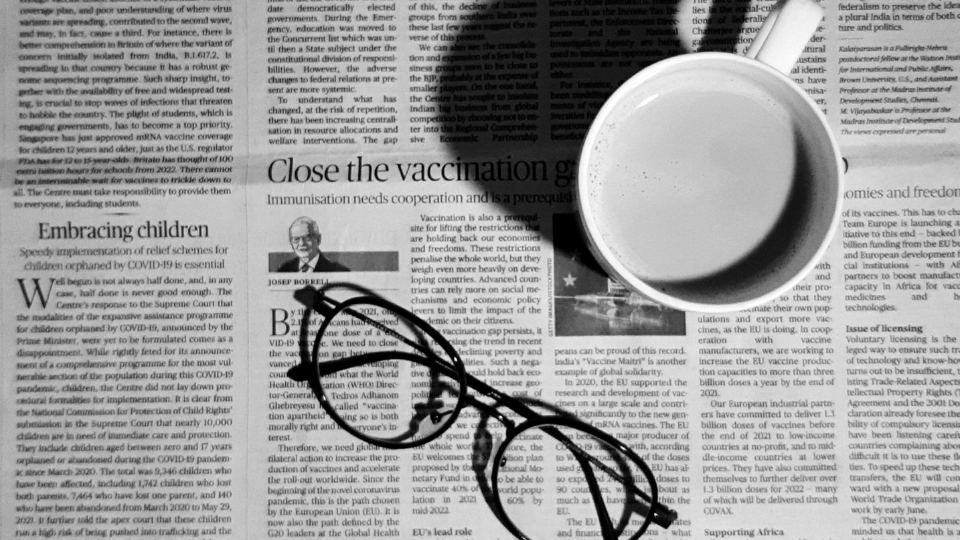In today’s fast-paced digital world, news literacy has become an essential skill for individuals seeking to stay informed and make sense of the overwhelming amount of information available. News literacy is the ability to critically analyze news sources, evaluate their credibility, and discern accurate information from misinformation or fake news.
With the rise of social media and the ease of sharing information online, it has become increasingly important to develop news literacy skills to navigate the vast landscape of news and media. In this article, we will explore some valuable tips to enhance your news literacy and become a more informed consumer of news.
1. Diversify Your News Sources
One of the first steps to improving news literacy is to diversify your sources of information. Relying solely on one news outlet or social media platform can lead to biased or incomplete perspectives. Explore a wide range of sources, including mainstream news organizations, independent journalism outlets, and international publications. This will help you gain a more comprehensive understanding of different viewpoints and avoid getting trapped in an echo chamber.
2. Fact-Checking is Key
With the prevalence of misinformation and fake news, fact-checking has become an essential practice. Before sharing or accepting information as true, take the time to fact-check it. Look for reliable fact-checking websites such as Snopes, FactCheck.org, or PolitiFact that provide unbiased assessments of claims and rumors. Develop a critical eye for detecting red flags, such as sensational headlines, lack of credible sources, or unverified information.
3. Understand Bias and Objectivity
Every news outlet has its own biases, whether intentional or unintentional. Understanding these biases is crucial for developing news literacy. Take the time to research and understand the editorial stance of different news organizations. By recognizing their biases, you can better navigate through the information presented and seek out a more balanced perspective. Remember, objectivity doesn’t mean absence of bias but rather a commitment to fairness and presenting multiple viewpoints.
4. Analyze the Source’s Credibility
Evaluating the credibility of news sources is another important aspect of news literacy. Consider the reputation and track record of the news outlet or journalist. Are they known for accuracy and thorough reporting? Do they have a history of retracting false information? Additionally, examine the transparency of their sources and their adherence to journalistic ethics. Reliable news sources provide clear attributions and verify information through multiple sources.
5. Be Mindful of Social Media
Social media platforms have become a primary source of news for many people. However, they are also notorious for spreading misinformation. When consuming news on social media, be cautious and skeptical. Verify the information through trusted news sources before sharing it. Additionally, be aware of the algorithms that curate your news feed, as they can contribute to confirmation bias and filter bubbles. Actively seek out diverse perspectives and fact-check information before accepting it as true.
6. Stay Informed about Media Literacy Initiatives
Various organizations and initiatives are working to promote news and media literacy. Stay informed about these initiatives and participate in workshops or programs that aim to enhance your news literacy skills. For example, Yellowbrick offers online courses in journalism and media literacy that can provide valuable insights and practical knowledge.
Conclusion
By following these tips and continuously honing your news literacy skills, you can become a more discerning consumer of news. News literacy is not a one-time achievement but an ongoing process of critical thinking and evaluation. In an era where misinformation can spread rapidly, being well-informed and equipped with news literacy skills is key to making informed decisions and contributing to a more informed society.
Key Takeaways:
- Diversify your news sources to gain a comprehensive understanding of different viewpoints and avoid echo chambers.
- Fact-check information before accepting it as true, and develop a critical eye for detecting red flags.
- Understand biases and seek out a balanced perspective by researching the editorial stance of news organizations.
- Evaluate the credibility of news sources based on reputation, track record, and adherence to journalistic ethics.
- Be cautious of misinformation on social media, verify information through trusted sources, and actively seek diverse perspectives.
- Stay informed about media literacy initiatives and consider participating in programs, such as Yellowbrick’s online courses in journalism and media literacy.
To further enhance your news literacy skills, consider enrolling in the “NYU | Modern Journalism” online course and certificate program offered by Yellowbrick. This comprehensive program will provide valuable insights and practical knowledge to help you navigate the complex world of news and media. Stay informed, stay critical, and make a positive impact in an era where news literacy is more important than ever before.







